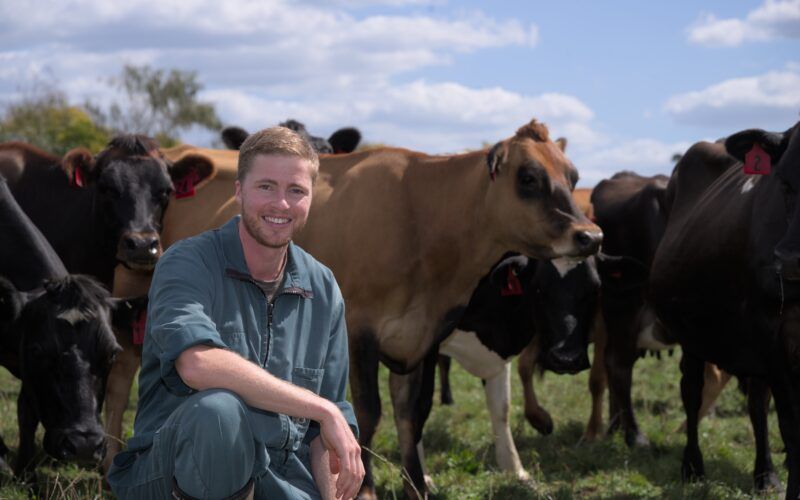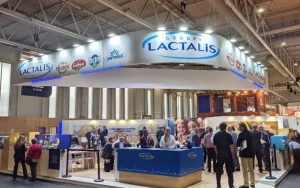
Around the world people are becoming more curious about the quality of life experienced by the animals supplying their food. Fonterra’s own research has identified “care of animals” as a key interest for customers and consumers across our major markets.
Historically we’ve been able to rely on the high standards of animal care displayed by our farmers and the “naturalness” of our farming systems to prove that our animals have a good quality of life. But as science reveals more about what animals need in order to have positive experiences, the people who buy our products want to see evidence that the various needs of our New Zealand dairy cows and calves are met.
The way we farm in NZ naturally provides lots of positive experiences for our animals, and we want to celebrate this. To help our farmers, the wider primary sector, our customers and consumers feel proud to talk about the ways we care for our dairy cattle, Fonterra is now using the term “animal wellbeing”.
Animal wellbeing is important in all of the markets where we operate, but not always for the same reasons. Some customers and consumers are interested in how animals are treated and cared for while others focus on the human benefits, with the theory that contented cows produce healthy, or healthier, milk.
Regardless of the reasons, the way we farm and care for our animals represents a huge opportunity. The NZ brand is strong, and we know that customers and consumers value our sustainability and provenance credentials, with many prepared to pay a premium for the products we make.
In Europe and the United Kingdom, people love their dairy. They are discerning consumers who are more and more interested in animal wellbeing. A recent animal wellbeing labelling study showed that 50% of EU consumers wanted to know more about animal wellbeing for the product they are buying, while in the UK at least a third of people are willing to pay more for products that have verified animal wellbeing credentials.
While the recent free trade agreement with the European Union didn’t deliver as much as NZ exporters were hoping for, the earlier deal struck with the UK contained a very interesting feature – a whole chapter dedicated to animal welfare.
Having animal wellbeing specifically discussed in trade negotiations provides a huge opportunity for NZ to showcase our great standards of animal care to an international audience, standards that are endorsed by independent organisations. Giving evidence to Westminster’s International Agreements Committee recently, the Royal Society for the Prevention of Cruelty to Animals stated: “New Zealand is the only country with whom the UK is negotiating a free trade agreement where there is broad equivalence on animal welfare standards. In some areas, New Zealand’s farm standards are above the UK’s.”
So how else do we prove to customers and consumers that animal wellbeing is at the forefront of what we produce?
Part of it is educating people about our farming system and how it naturally supports good animal wellbeing. We have a great climate, meaning our cows spend nearly all their time out on pasture, and we don’t rely on grain feeding. Our cows can choose where and what they eat, are free to roam, and have plenty of opportunity to interact with each other and form social bonds.
We use the Five Domains model as a framework to help us measure and understand animal wellbeing. The Five Domains recognise that both positive and negative experiences in each of the four physical domains (nutrition, environment, health, behaviour) contribute to the overall experience each animal has – the fifth domain called “mental state”.
We’re doing our best to engage with vets, farmers, and our own people within Fonterra to talk about how we can create, recognise, and celebrate positive outcomes across all the Five Domains to achieve good wellbeing for all our animals.
The Co-operative Difference is one mechanism we’ve got to do this – by asking farmers to work closely with their vet to develop and implement an Animal Wellbeing Plan that addresses all four physical domains and strives to create an overall state of wellbeing for our cows.
























